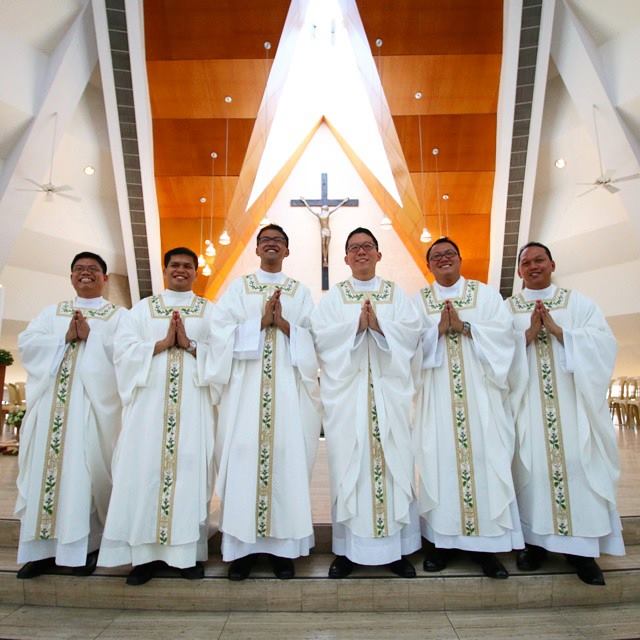Jesuit Asia Pacific Conference
As a background, the JCAP is one of six Jesuit conferences around the world and covers Jesuit life and service in Asia Pacific.
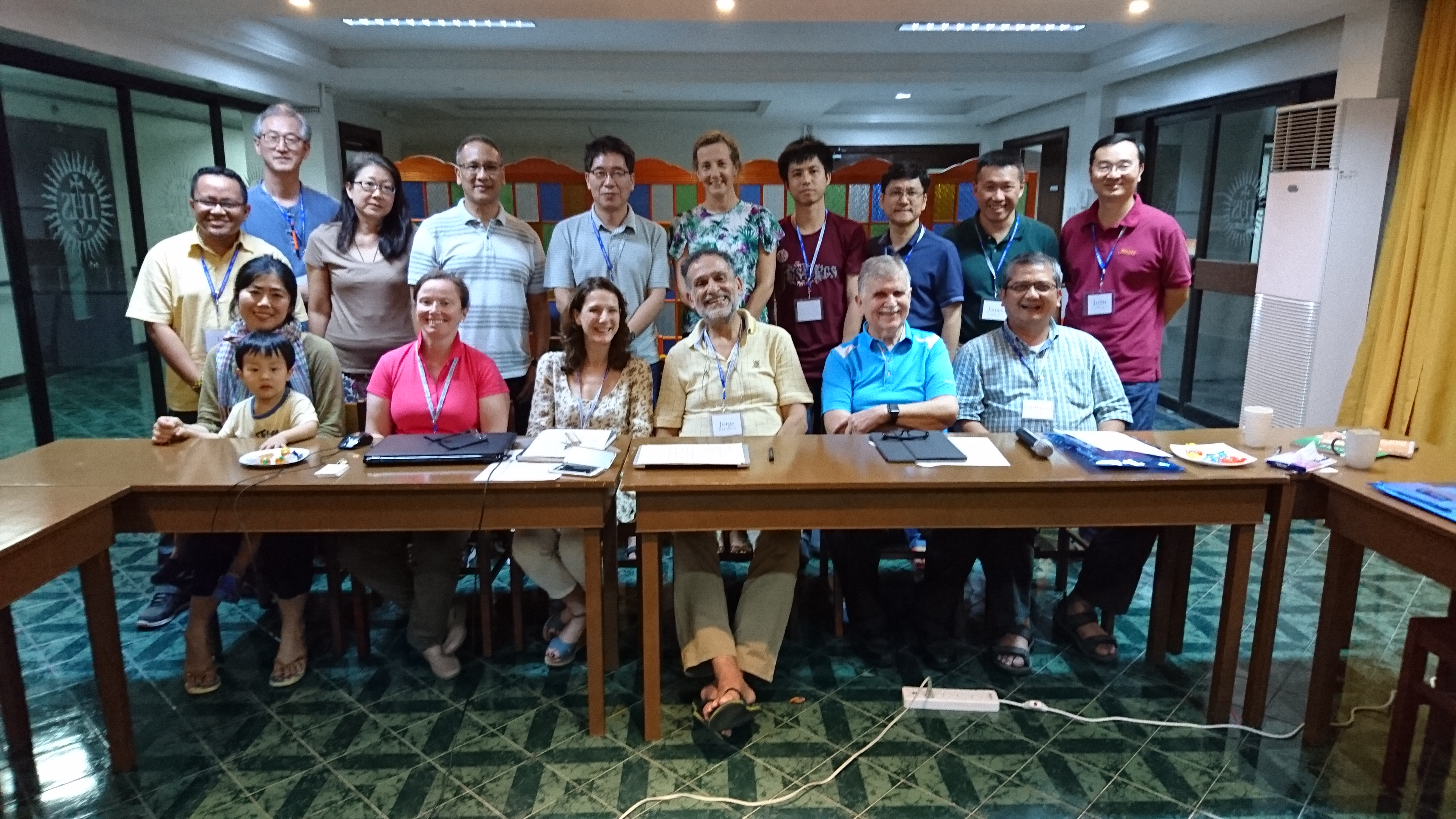
As a background, the JCAP is one of six Jesuit conferences around the world and covers Jesuit life and service in Asia Pacific.

The Literacy Program in Culion, Palawan aims to develop the reading and writing skills of both the adults and children in selected Tagbanua communities. The program also aims to preserve the Tagbanua’s local culture and develop stronger and more confident communities.
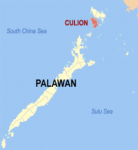
In 1904, Gov. Wright of the American Commonwealth, established Culion as a leper colony paving the way for the first batch of 370 lepers from all over the archipelago to settle in 1906. In the same year, American Jesuits were sent to Culion to start chaplaincy work for the lepers and employees of the Philippine Health Service. Over the years, the Loyola College of Culion was established and has seen the chaplaincy to La Inmaculada Concepcion Parish grow and flourish.
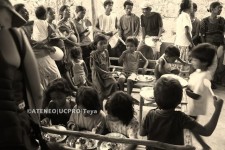 Fr. Bok Arandia SJ, during his stay in Culion wrote, “after the establishment of the leper colony, the indigenous Tagbanua communities who were the original inhabitants of the Culion peninsula were forced to settle in remote islands, with limited access to basic social services and education. They manage to survive through fishing, food gathering, and primitive agriculture. However, because of their inability to read, write and count, certain devious individuals have taken advantage of their ignorance, cheating them to sell their produce and catch at scandalously low prices. Politicians have likewise used them to secure victory during elections, gathering and containing them in undisclosed holding areas distant from the influence and access of their political rivals.”
Fr. Bok Arandia SJ, during his stay in Culion wrote, “after the establishment of the leper colony, the indigenous Tagbanua communities who were the original inhabitants of the Culion peninsula were forced to settle in remote islands, with limited access to basic social services and education. They manage to survive through fishing, food gathering, and primitive agriculture. However, because of their inability to read, write and count, certain devious individuals have taken advantage of their ignorance, cheating them to sell their produce and catch at scandalously low prices. Politicians have likewise used them to secure victory during elections, gathering and containing them in undisclosed holding areas distant from the influence and access of their political rivals.”
In 2006, the Philippine province re-examined its mission in Culion. Since there was no need for chaplaincy work due to the fewer number of lepers in the island, the Province decided to help the Tagbanuas, an Indigenous People community, through a literacy program.
In 2008, through the help of the Sisters of St. Paul of Chartres, a literacy program was began with some teachers from the parish. In 2011, Cartwheel Foundation brought their expertise and modules to help aid and systematize the program. Since then, the parish, SPC and Cartwheel have been partners in this endeavor.
The program
Before 2011, literacy programs that were introduced had no sustainability mechanisms in place. Hence, there was a crucial and urgent need to establish one that will remain a fixture in order to equip members of the communities with essential literacy and life skills.
The first six-month cycle of the new program began at the end of August, 2011 with forty (40) adult learners from two (2)Tagbanua communities – Alulad and Marabal.
In June 2013, the adult capability-building program ran its third cycle, further expanding operations to four (4) indigenous communities from the original two (2) pilot areas. They have also instituted an early childhood education program for the Tagbanua communities in Culion.
Currently, the Adult Literacy Program is run by the Cartwheel Foundation, Our Lady of the Immaculate Concepcion Parish and the St. Paul of Chartres Sisters. Fr. Arthur Nebrao, SJ is currently Parish priest of La Inmaculada Concepcion.
Typhoon Yolanda hit Culion with devastating effects. These photos were taken during the visit of the Ateneo Disaster Response and Management (DReaM) Team and the Simbahang Lingkod ng Bayan in Culion, Palawan last December 5 to 9. The team visited the different areas and islands devastated by Typhoon Yolanda.
Indigenous Peoples, like the Tagbanuas are generally discriminated not only because of their physical appearance but because many of them have low self esteem due to the lack of reading and writing skills.
Please donate to support the Literacy program and help build their lives in the aftermath of typhoon Yolanda! The Literacy program’s next steps are:
Click the Blue box above to make an on-line donation. Or else, click here.
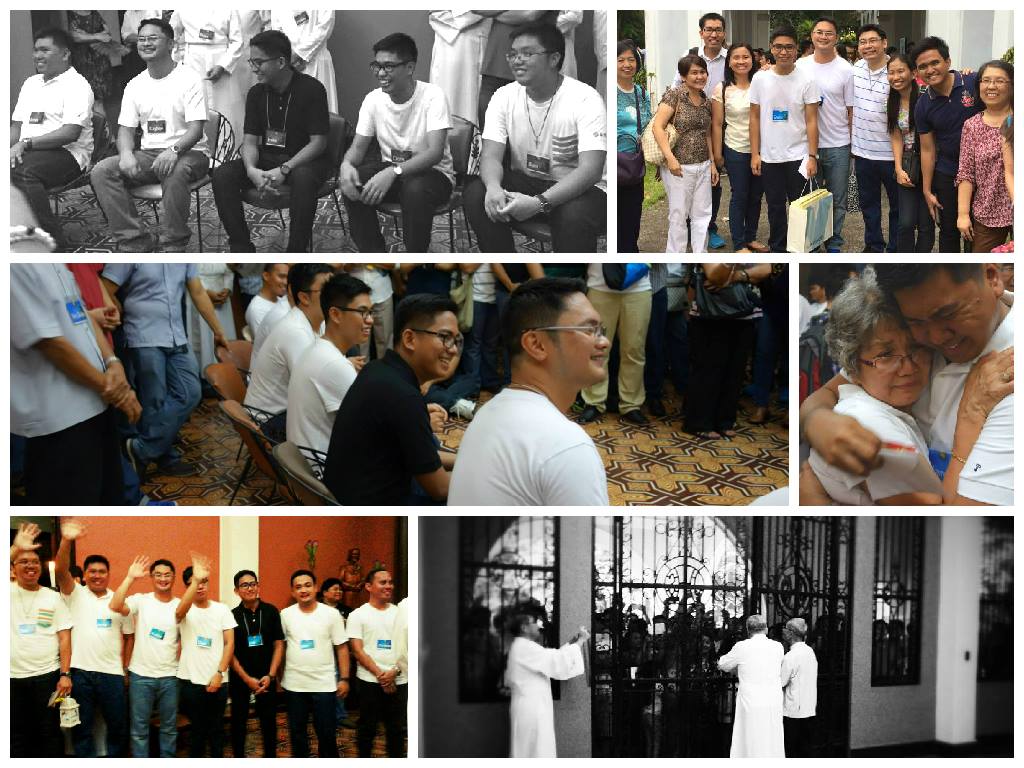
By Fr. Olivier Lardinois SJ, Assistant for Formation, Chinese Jesuit Province
This article was originally published in Jesuits in Asia Pacific 2015, the annual report of the Jesuit Conference of Asia Pacific. It can also be found in their website.
At the very heart of the Jesuit vocation lies a personal commitment to follow the call of Jesus to work through him, with him and in him at the service of the Kingdom of God, which grows anywhere love and justice flourish: “Follow me and I will make you into fishers of men” (Mark 1:17) This is
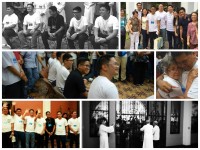
why several documents on Jesuit formation claim that God is the educator par excellence and why training for mission cannot succeed without helping the young Jesuit foster his friendship with Jesus. Through a solid and regular prayer life, the young Jesuit in formation cultivates his intimacy with Christ, which slowly teaches him how to better discern, teach, behave and love as Jesus himself would do. In fact, without an ability to convert himself daily in front of the Gospel and a deep desire to grow as a disciple of Jesus, a young man is unfit to enter or to stay in the Society of Jesus.
Another crucial dimension of Jesuit formation is to learn how to gain an ever-growing freedom of heart in front of all those things that can become a real obstacle to serving the mission well. Some examples of obstacles are over-dependence on the affection of our family or good friends, too great an attachment to material comfort, a recurrent desire to feel 100 percent secure, our own ideas or prejudices regarding other persons or social classes or cultures or religions, our inner fears and anxieties, a lack of faith in God’s actions, having too strong a need to have our achievements seen and praised by others, and giving too much attention to our own self-respect and face. This is why Jesuit formation endeavors to provide not just solid training in spiritual life towards conversion, but also a few psychological tools to help the future priest or brother to know his own personality better-his talents and limits, the inner wounds brought by early childhood, his patterns for leadership and the maintaining of relationships, his own gree, sexual impulse, anger or blues, etc. The more a man learns about how to cope well with his own imperfect character and psychology, the better he can serve others.
Another important challenge of Jesuit formation is to empower future priests and brothers so that they can serve, accompany and/or train people, with enough joy, abnegation, intelligence, discernment, common sense, discretion, flexibility, humility and creativity. Without possessing at least a few of these abilities, it will not be easy for them to pursue the main aims of the Jesuit mission: to inseparably promote faith and justice, to train men and women at the service of a more attractive Church and/or a better world, to do mission works at the frontiers i.e. where other priests usually do not go to serve, and to dialogue and cooperate with people of other cultures and/or religious faiths. This is why even as the young Jesuit studies philosophy or theology, he is asked to serve with confreres and collaborators in different kinds of challenging works to teach him how to work as part of a team and help him become a more mature, wise and loving human being. These works include service to the sick or to prisoners, teaching in a high school or university, social works at the service of the poor, intellectual research, preaching in front of an audience, youth training or pastoral leadership, media work, and spiritual guidance.
Last but not least, the main characteristic of Jesuit formation is the Magis Spirit. It means to learn how to reflect and to work at a deep level, so that the result of one’s efforts in mission work can produce many good and long-term fruit. Jesuit formation insists much on the high quality of intellectual  studies, which should not only include a solid introduction to the human sciences such as philosophy, social analysis and anthropology and/or psychology, but also good training on how to reflect,write or speak on various subjects in depth, with a sharp, critical spirit in front of the sources of knowledge which man uses, and with the realization that any reality if often quite complex to understand and judge. In this spirit, the young Jesuit is encouraged to experience at every stage of his formation various mission contexts, which will help him work effectively in today’s global and multi-cultural world.
studies, which should not only include a solid introduction to the human sciences such as philosophy, social analysis and anthropology and/or psychology, but also good training on how to reflect,write or speak on various subjects in depth, with a sharp, critical spirit in front of the sources of knowledge which man uses, and with the realization that any reality if often quite complex to understand and judge. In this spirit, the young Jesuit is encouraged to experience at every stage of his formation various mission contexts, which will help him work effectively in today’s global and multi-cultural world.
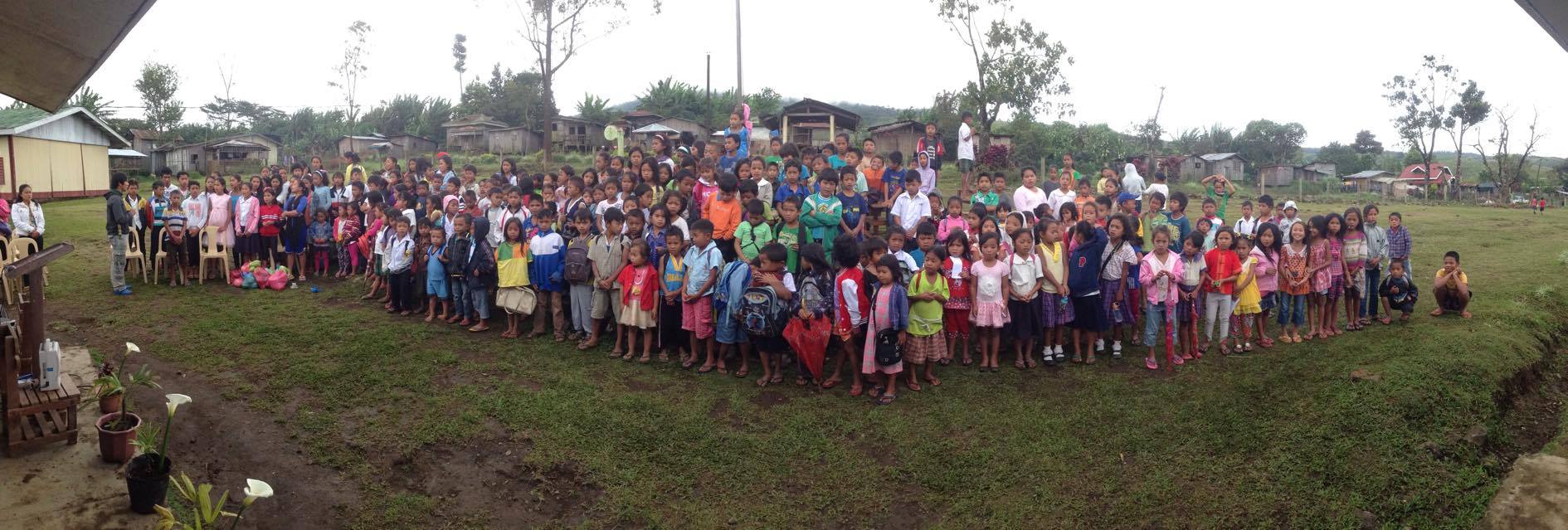
Jesuits in the Philippines are prepared for ministry through a long and rigorous process of formation. The formation of Jesuits for priesthood takes 11-12 years, indeed a considerable period of time. For quality service requires quality preparation. The costs of formation over so many years are very high. For many years, the Philippine Province of the Society of Jesus has managed to cover the cost. But with rising costs, the Philippine Province is beginning to feel heavily the financial responsibilities of its mission.
The impact of the Jesuits in the Philippines is extraordinary and unparalleled. They are probably best known as caring and gifted educators, but they are also deeply committed to community service, apostolic missions and religious vocations.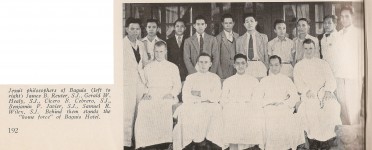
Over the years, so many Jesuits have lived, worked and died in the Philippines. This is what they do – give their all, no matter what the cost. Today there less than 300 Jesuits in the Philippine Province, of which 100 are over 70 years old, and so many of them are infirm in one way or another. Their health and medical care have taken its toll on the finances of the Jesuits.
We appeal to our lay partners to honor and support these deserving men with your kindness, thoughtful prayers, and with your generous donations.
Our Jesuit priests are called to bring hope, reconciliation and peace into situations of hopelessness, strife and enmity. They are missioned to Bukidnon to serve the people in Zamboanguita and especially the indigenous people in the surrounding mountains, to the poor people and former lepers of Culion, to the prisoners of Muntinlupa, to the sick at Philippine General Hospital, to direct the Emmaus Center to provide counselling for religious and priests, and even to Myanmar, Cambodia and East Timor.
Wherever they are assigned, our Jesuit priests cannot do the work alone. In most places where they serve, the people have very little money to put in the collection box.
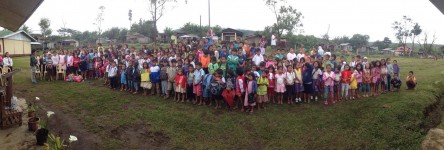
We appeal to our friends to join our priests in their mission with prayers and through generous contributions to their apostolic works.
